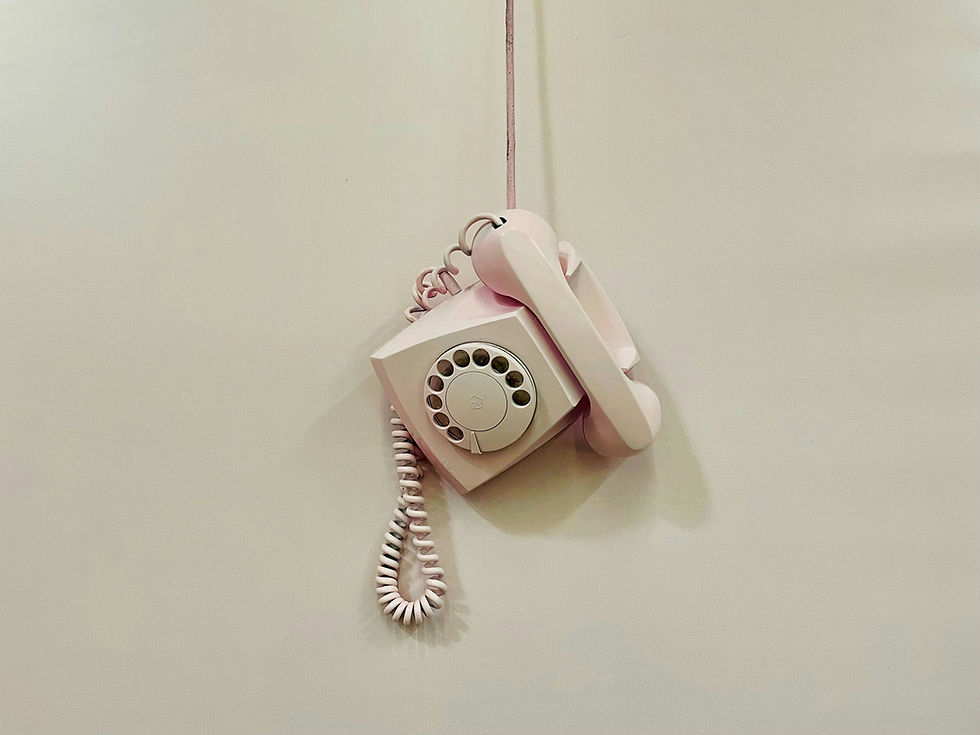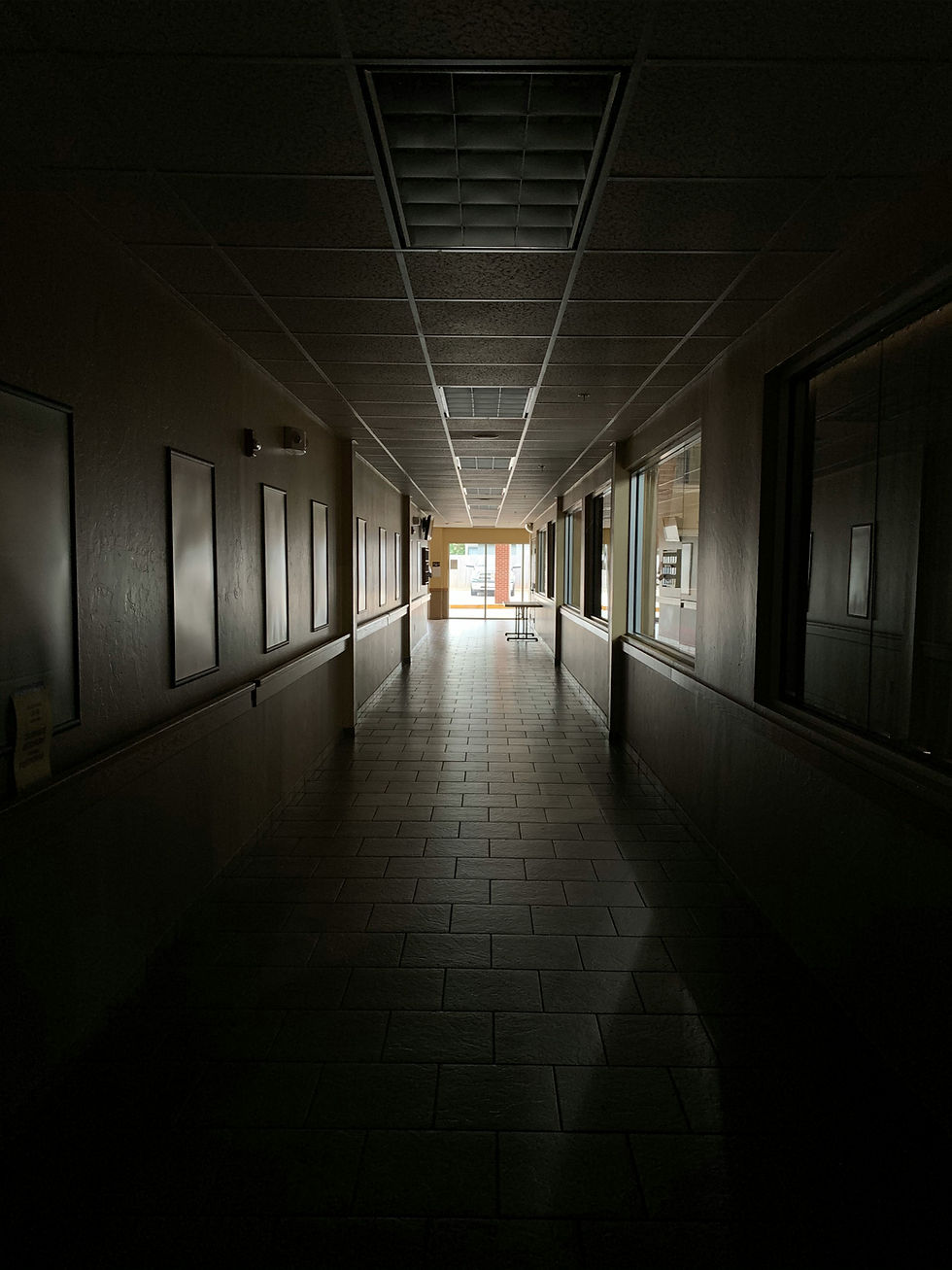The dreaded call
- Ana
- Sep 13
- 4 min read
Updated: Sep 22

Nothing can prepare you to see this sentence in a medical report: “You have breast cancer.”
I was in the middle of a work meeting when I got a notification on my phone telling me that my breast biopsy resultswere available. Being the anxious person I am, of course I opened it right away, and when I read that sentence, I felt like I was having an out-of-body experience—almost like a dream (or nightmare, if you prefer). From that moment on, nothing else felt real for a while. I was still functioning, but my mind was racing with thousands of thoughts, and honestly, I wasn’t really processing anything. I was in absolute shock. It felt so surreal that I thought I was in the middle of a prank, waiting for someone to jump out in front of me and yell that it was all a joke.
I probably need to start with how I got there. Let me set the stage: I have no history of cancer in my family. No symptoms. No detectable lumps or bumps or anything that would prompt me to be concerned about breast cancer symptoms. I was on my merry way, thinking it was just one (annoying) regular check-up. But that is the bliss of ignorance—it allows you to keep going and making plans, not knowing your life is about to turn upside down.
When the first mammogram report showed that some “calcifications” were present and a recall for additional images was required, I didn’t think much of it. After all, it’s an imaging exam—sometimes it isn’t clear and requires different angles. The rational side of my brain told me it was absolutely normal, and I continued with my life. Then the recall day came: another mammogram, with tons of images this time, and an ultrasound exam “just to make sure we get everything.” When, during the ultrasound, a parade of people started coming into the room, alarms went off in my mind: something was not right. The technician was a sweetheart and kept being nice and positive, but I was already triggered. After the ultrasound, I was told the doctor wanted to talk to me—and that’s when my anxiety spiked a few more notches. The doctor explained that I had a tumor and they wanted to investigate further. At the same time, she reassured me that most likely it would be benign: I was young, had no family history, no symptoms. It was a precaution. Honestly, at this point the cat was already out of the bag, and I started thinking about the possibility. Next steps: biopsy. During that same appointment, I scheduled it and received an explanation of the procedure. Honestly, I wasn’t engaged anymore; everything was a blur. (And yes, I had to Google later to understand exactly what it would be like.)
Then came breast biopsy day. Of course I was nervous, but I clung to the fact that, statistically speaking, the chances were high it would be nothing. The procedure itself is pretty simple: they numb the area, make a small nick, and insert a needle to get three tissue samples. At the same time, a small metal marker is placed in the area—so if it came back benign, it would help future exams track any changes. Regardless, this spot would demand attention for the rest of my life, and the marker was one more reminder of it. After the biopsy, a few more mammogram slides, and then I was wrapped in ice and sent back to my life. And I tried to continue as normally as I could (though I had to change the ice pack every couple of hours). I went to the office. I attended my kid’s sports meet. I even ran and cheered like there was no tomorrow. But inside, a revolution of thoughts was happening.
And then we circle back to that first paragraph: the day I saw the tissue report. Being at work, in the middle of a very important meeting, and having to keep my exterior unaffected while internally crumbling was one of the hardest things I’ve ever had to do. I’m pretty good at bottling feelings and putting on a professional face, but this day demanded an amount of energy I almost couldn’t hold. An hour or so later, I got the call—the dreaded call. A nurse reached out to go over my results. That was when I completely fell apart and was forced to face reality. It was hard. She explained the details—there were still some results pending that would define the treatment plan. She got me scheduled with a multidisciplinary breast cancer care team a few days later (I’ll write about the medical appointments parade that comes with cancer another time), and I was left to digest the massive meteor that had just hit my life.
Honestly, it’s hard to make peace with the fact that I have breast cancer. It truly makes you live through all the stages of grief. But being a pragmatic and practical person, I wanted to get to the acceptance stage as quickly as I could. The reality, though, is that this path is not a straight line—it’s more like a roller coaster. Some days you are fine and positive. Other days, the anger comes back and you question everything all over again. Writing is the space where I can let it all out: the raw, the messy, the honest. Without filters, without pity, without the weight of carrying everyone else’s emotions. This is my way of making sense of what’s happening, one word at a time. And maybe, along the way, it will also help me find strength in places I didn’t know I had.



Comments